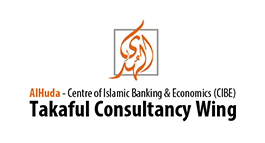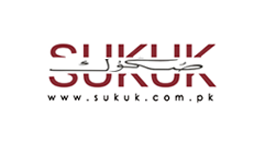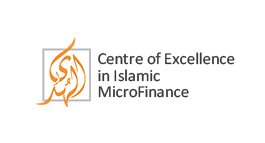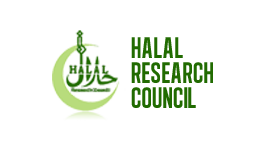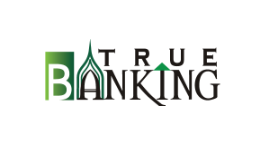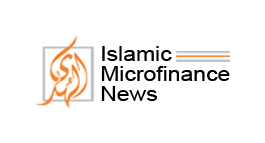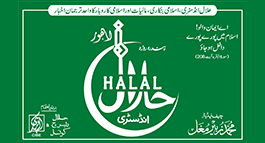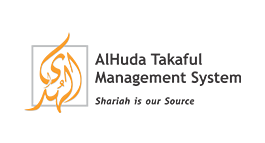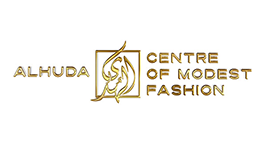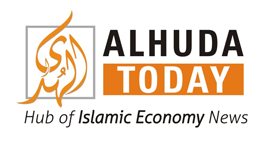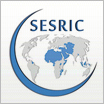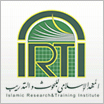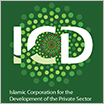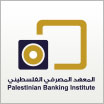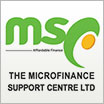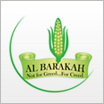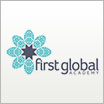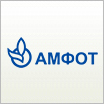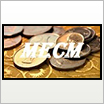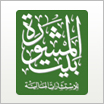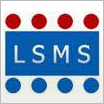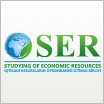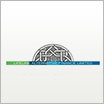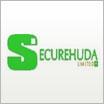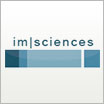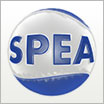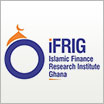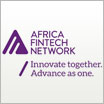The Development of Islamic Finance in USA: A Journey of Growth and Opportunity
By: Muhammad Zubair Mughal, CEO - AlHuda CIBE, UAE
Islamic finance, established in the 1960s, has gained global traction due to its universal ethical principles. Even in the United States, it has been widely embraced, thanks to favorable environments and political backing. The country, known for financial innovation and economic prowess, has seen a surge in Islamic finance, rooted in ethical principles and Sharia compliance. This alternative financial system has piqued the interest of both Muslim and non-Muslim communities across the nation. Of particular appeal are Sukuk (Islamic bonds), which can be utilized by American entities and the US government to raise funds for various business, social, and educational initiatives.
The inception of Islamic finance in the United States can be traced back to the 1980s when two West Coast institutions began offering small investment funds and serving as financial service providers for Muslim communities. Throughout the 1990s and 2000s, the market saw substantial growth, in line with the increasing Muslim population in the US, which rose from 50 percent to 66 percent during this period. However, it was after the 2008 financial crisis that the Islamic finance sector truly flourished. The quest for more ethical and transparent financial frameworks drove many individuals and institutions to embrace Islamic finance principles, such as profit-sharing, risk-sharing, and asset-backed financing.
The landscape of Islamic finance in the US is seeing significant growth, with approximately 43 institutions providing Sharia-compliant financial products and services. Major players in terms of asset size include LARIBA American Islamic Finance and University Bank's subsidiary, University Islamic Financial. JP Morgan was an early adopter in 2013, launching Islamic banking services, while Standard Chartered Bank introduced Islamic banking products through its Saadiq division in over 70 countries, spanning Asia, Europe, the Middle East, and the USA. International institutions headquartered in the USA, such as the IFC, USAID, IMF, UN Bodies and the World Bank, are pivotal in facilitating Sharia-compliant financing for infrastructure, trade, and development projects in vulnerable regions worldwide.
The United States has emerged as a significant participant in Islamic finance within the last 30 years. American companies have introduced seven Islamic funds with a total asset under management of $3.6 billion. Additionally, 15 US financial institutions now provide Sharia-compliant products such as home financing and investment services. Furthermore, five US issuers have accessed the Sukuk market, generating $1.1 billion. The US clearly embraces Islamic finance as a viable and expanding segment of the financial system. Domestic demand is a key driver for the US Islamic finance market, particularly in the realm of home financing. Approximately 10,000 Sharia-compliant home purchases have been carried out over the past decade. Islamic indices have been introduced in the U.S. to meet the growing demand for Shariah-compliant investment options. Notable examples include the S&P Dow Jones Islamic Market US Index and the MSCI USA Islamic Index, which serve the needs of Shariah-compliant investors. Established in 2000, the S&P Dow Jones Islamic Market US Index, as of August 30, 2024, included 508 constituents with an average total market capitalization of USD 73.321 billion, with major technology companies like Apple and Microsoft holding significant weight. Meanwhile, the MSCI USA Islamic Index, as of August 30, 2024, comprised 123 constituents and recorded a 25.66% gain in 2023. These indices offer Islamic investors a structured, Shariah-compliant way to access U.S. equities.
Islamic financial institutions in the US have faced challenges in engaging in deposit-taking activities due to regulatory barriers. The lack of a specific regulatory framework for Islamic finance in the United States has hindered the industry's growth and development. The current regulatory framework designed for traditional finance does not perfectly accommodate the distinctive characteristics of Islamic financial products and services. This misalignment can lead to ambiguity, regulatory non-compliance, and diminished market trust.
Ensuring rigorous adherence to Shariah principles is a challenging endeavor that necessitates specialized knowledge and proficiency. Financial institutions are required to navigate a continuously changing regulatory environment and solicit advice from qualified Shariah scholars to sustain compliance. Non-compliance with Shariah principles can harm the institution's reputation and have legal ramifications.
The United States, as a prominent global economic and financial hub, offers substantial prospects for the growth of Islamic finance. Its exceptionally sophisticated and liquid financial markets encompass diverse sectors such as banking, asset management, insurance, and venture capital. Notably, US asset managers command over 67% of the OECD pensions market and maintain strong ties to international financial trends, rendering the US market crucial for the advancement of Islamic finance. Additionally, Islamic banking has the potential to resonate with both the Muslim community in the US and individuals seeking ethical financial solutions.
The increasing Muslim population in the United States represents a significant market opportunity for Islamic finance. As the Muslim population grows, there is a greater demand for financial products and services that align with their religious and cultural values. The statistics indicate that the Muslim population in the US is currently at 1.1% (approximately 3.45 million people) and is expected to reach 6.2 million people by 2030, so there is a growing market for Islamic finance.
Moreover, increasing government support and recognition of Islamic finance can create a more favorable environment for its growth. Government policies that promote financial inclusion, support Shariah-compliant products, and provide regulatory clarity can play a crucial role in fostering the development of Islamic finance in the United States.
However, a significant challenge lies in highlighting the ethical value propositions of Islamic finance to broaden its appeal beyond earnest Muslims. Islamic banking prohibits involvement in activities considered unethical, such as alcohol consumption, gambling, and certain industries like weaponry production.
The United States serves as a centre for financial innovation, presenting an opportunity for Islamic finance to leverage technological progress and new product development. The fusion of Islamic finance with fintech has the potential to drive the creation of groundbreaking financial products and services that cater to the changing consumer landscape. The global fintech industry is experiencing rapid evolution, with considerable focus from US-based entities. While major players like PayPal and Stripe maintain dominance in specific markets, startups in regions like Africa are thriving by incorporating local financial practices into their services. In Muslim-majority nations, fintech firms are increasingly introducing Sharia-compliant options such as Sukuk bonds and ethical micro-investments. This trend extends to the burgeoning cryptocurrency sector, with the emergence of platforms facilitating secure and transparent Shariah-compliant digital asset transactions, despite regulatory hurdles. This intersection of global expertise and regional nuances is reshaping financial inclusion, offering individuals and businesses a wider range of secure and ethical financial instruments tailored to their specific needs. According to a research chapter by the IMF, "In secular jurisdictions such as the United Kingdom and the United States, the courts have demonstrated willingness and capability to enforce Islamic finance contracts, despite the secular nature of these jurisdictions." This highlights the significance of Islamic finance in advanced nations such as the US.
Islamic finance in the US faces significant challenges stemming from conflicts between legal frameworks and religious principles, which impede product development and access to federal funds. In addition, fragmented regulations across jurisdictions and the complexity of financial structures contribute to the turbulent landscape. Regulators often lack the capacity or motivation to ensure Sharia compliance, leading to inconsistencies. Furthermore, limited market liquidity, low investor awareness, and concerns about reputational risks, such as accusations of terrorism financing, constrain operational scope and growth. Proactively collaboration between regulators, financial institutions, and the public is essential to address these challenges. The industry requires clearer regulations, robust Sharia-compliant products, and improved market infrastructure to realize its full potential.
Islamic finance has established a promising presence within the US financial system due to its adherence to ethical principles and the increasing Muslim population. While facing regulatory challenges and a lack of market exposure, there is clear potential for substantial future expansion. Building a strong Sharia-compliant ecosystem through collaborative endeavors could unlock this potential and drive Islamic finance toward widespread adoption in the US. This would not only benefit Muslim communities but also non-Muslim populations. The limited awareness of Islamic financial products among both Muslim and non-Muslim consumers may impede their adoption. Many individuals may not fully comprehend the advantages and principles of Islamic finance, thereby constraining market penetration.
The current constrained diversity of Islamic financial products in the US, relative to other markets, limits consumer options and impedes industry expansion. Diversifying product offerings to accommodate a broader range of needs and preferences is essential for broadening the customer base. Despite these considerable challenges, the potential of Islamic finance in the United States remains substantial. By tackling these issues through policy reforms, educational initiatives, and innovative strategies, the industry can sustain growth and make significant contributions to the overall financial sector. Overall, despite facing challenges, the future of Islamic banking in the USA looks promising. This optimism is fueled by demographic growth, rising interest in ethical finance, and continuous efforts to integrate and expand within the wider financial industry. Though currently a niche market, Islamic finance in the USA has significant growth potential. Its future success will rely on several key factors, including rising demand for ethical finance, supportive regulatory frameworks, innovative product development, and increased market education. With these components in place, Islamic finance could evolve into a more prominent segment of the US financial landscape. Islamic banking education in the United States has been expanding to meet the rising demand for professionals knowledgeable in Islamic banking and finance. Educational institutions in the U.S. offer a range of programs designed for students & professionals interested in Islamic banking and finance.
Strengthening the Islamic Banking and Finance (IB&F) industry in the U.S. presents a unique opportunity to enhance financial ties with the Muslim world, particularly with Gulf countries where Islamic banking already holds a significant market share. Expanding IB&F in the U.S. would not only add value to the current financial sector but also introduce diverse banking and financial products that could boost Foreign Direct Investment (FDI) and elevate the industry as a whole. It's important to note that IB&F is not a religion but a financial model that can be used by both Muslims and non-Muslims. For Muslims, they have an extra advantage that it aligns with their religious beliefs, while for followers of other respected faiths, it offers an ethical and robust alternative for banking and finance. This inclusiveness has contributed to the widespread popularity of Islamic finance across various groups in many countries.
Over the decade, the Alhuda Centre of Islamic Banking & Economics (CIBE) has played a pivotal role in advancing the principles of Islamic finance in the United States. In addition to providing high-quality Shariah advisory services and capacity-building training, Alhuda CIBE actively engages with influential U.S. organizations such as the World Bank, IFC, USAID, and UN bodies to shape the landscape of Islamic finance globally. Through their comprehensive Shariah compliance solutions and impactful training workshops, they equip individuals and organizations with the knowledge and skills needed to navigate the complexities of Islamic finance. Operating in major American cities, including Washington, Philadelphia, Chicago, New Orleans, and San Francisco, Alhuda CIBE regularly hosts workshops and events to extend its reach and impact.
(Muhammad Zubair Mughal, a distinguished expert in Islamic banking, currently serves as the Chief Executive Officer of the AlHuda Centre of Islamic Banking and Economics in the UAE, he can be contacted at zubair.mughal@alhudacibe.com)


